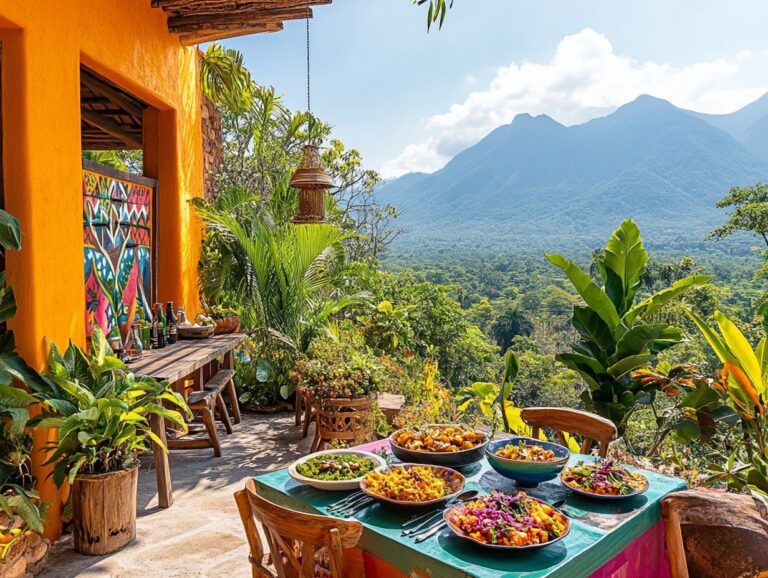Vegan wellness retreats are gaining popularity across the UK, offering a unique blend of relaxation, health, and plant-based living. These retreats not only serve delicious plant-based meals but also provide holistic experiences that include yoga, meditation, and nature activities. As more individuals strive for healthier lifestyles, the benefits of adopting veganism continue to grow. This article will explore what a vegan wellness retreat entails, the advantages of attending one, what to expect during your stay, and how to choose the best retreat for your personal well-being journey.
What Are Vegan Wellness Retreats?
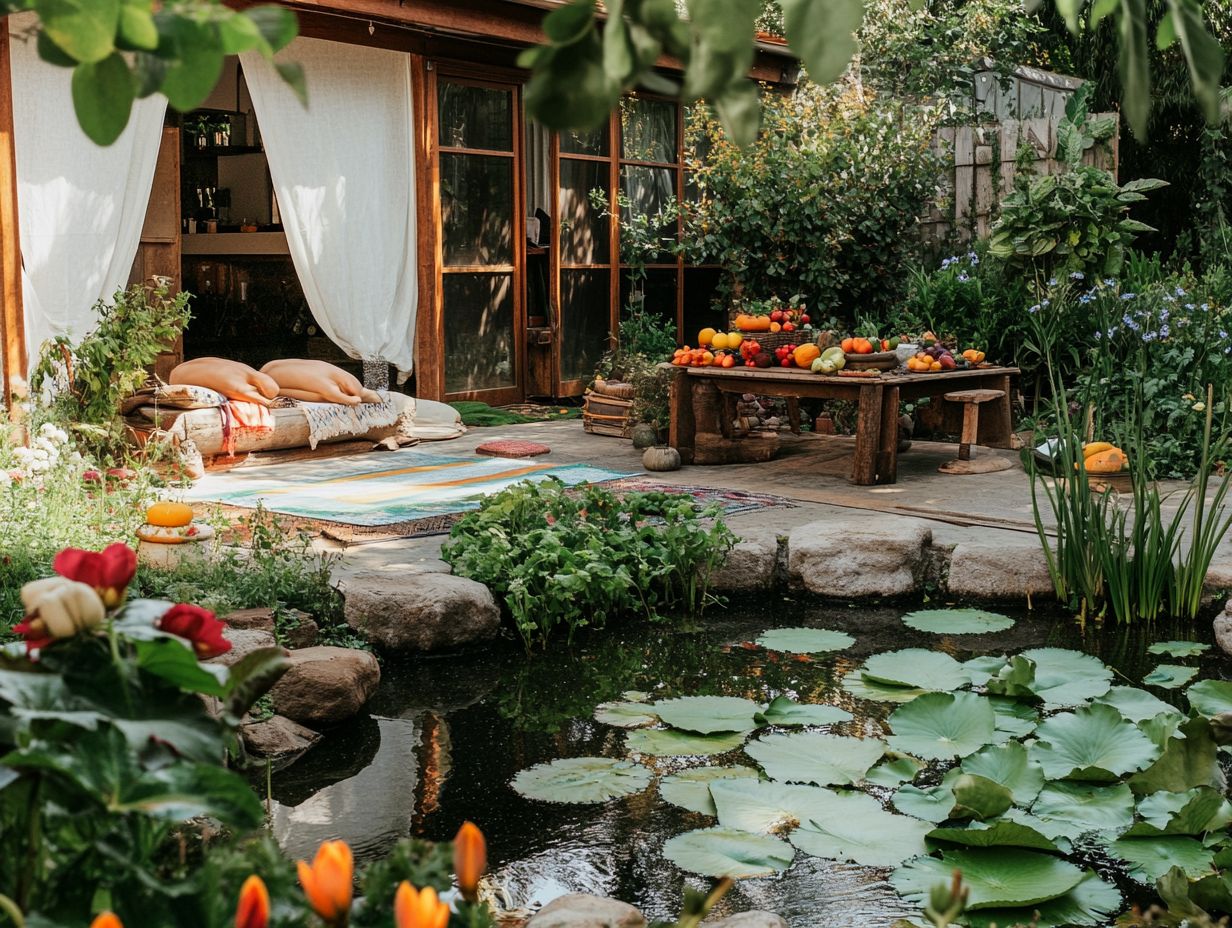
Vegan wellness retreats provide transformative experiences that nourish the body, soul, and mind through a combination of plant-based cuisine, mindfulness practices, and community engagement. Guests enjoy the vibrant flavors of seasonal ingredients, such as turmeric, kimchi, and cacao, in creative dishes that are as exciting to taste as they are healthy.
Typically held in serene natural environments, these retreats allow participants to disconnect from daily stressors and reconnect with their inner selves.
By offering a holistic approach to wellness, which includes yoga, creative cooking classes, and activities focused on relaxation and healing, these retreats promote an energetic and balanced lifestyle while fostering a supportive community among like-minded individuals.
Why Are Vegan Wellness Retreats Popular in the UK?
Vegan wellness retreats have gained significant popularity across the UK as more individuals seek lifestyle changes centered on health, sustainability, and mindfulness.
The increasing awareness of the health benefits associated with a plant-based diet, both for physical and emotional well-being, has inspired many retreat-goers to explore the vibrant flavors and nourishing meals that invigorate the body and soul.
These retreats provide not only unique culinary experiences but also foster a sense of community, allowing participants to share their collective journeys toward a more balanced life. Facilities such as Green Campus Delta and Sunsetbay Retreats offer diverse menus that highlight plant-based breakfasts, lunches, and dinners, encouraging guests to explore the nourishing and healing aspects of vegan dining.
What Are the Benefits of a Vegan Lifestyle?
The benefits of a vegan lifestyle encompass improved physical health, enhanced emotional well-being, and a stronger sense of community. Individuals who adopt a plant-based diet using seasonal ingredients often report lifestyle and health advantages, including increased energy, better digestion, and reduced risk of chronic diseases.
Additionally, adopting a plant-based diet contributes to environmental sustainability by decreasing the use of natural resources and lowering greenhouse gas emissions. This sustainable approach aligns with the environmental consciousness of retreat centers in places like West Witter, Tywyn, and Bird Rock, where mindfulness and community are central to the experience.
Veganism can also foster community and friendships; many people find joy in belonging to a group of like-minded individuals. Transitioning from an animal product-based diet to a whole-food plant-based diet encourages mindfulness regarding food choices, prompting many to think more critically about their eating habits.
Ultimately, veganism promotes positive, holistic improvements in the quality of life for both individuals and the broader world. The kindness and health benefits associated with a vegan lifestyle extend even to those who do not follow a vegan diet.
What Can You Expect from a Vegan Wellness Retreat in the UK?
Attending a vegan wellness retreat in the UK offers numerous benefits, including a focus on healthy eating, opportunities for transformative personal practices, and a supportive, engaged community to enhance those practices.
Participants can look forward to enjoying seasonal plant-based meals, yoga sessions, nature walks, and various outdoor activities. With a focus on holistic healing, retreats often feature themed yoga sessions, such as Yang Yoga and Yin Yoga, as well as unique experiences like Gong sound baths to enhance the journey of transformation.
Additionally, depending on the specific retreat, they may have the chance to attend workshops on cooking, wellness, and sustainability. This combination of experiences creates a holistic and immersive environment that promotes both physical and emotional healing, as well as personal growth.
1. Plant-based Meals and Cooking Classes
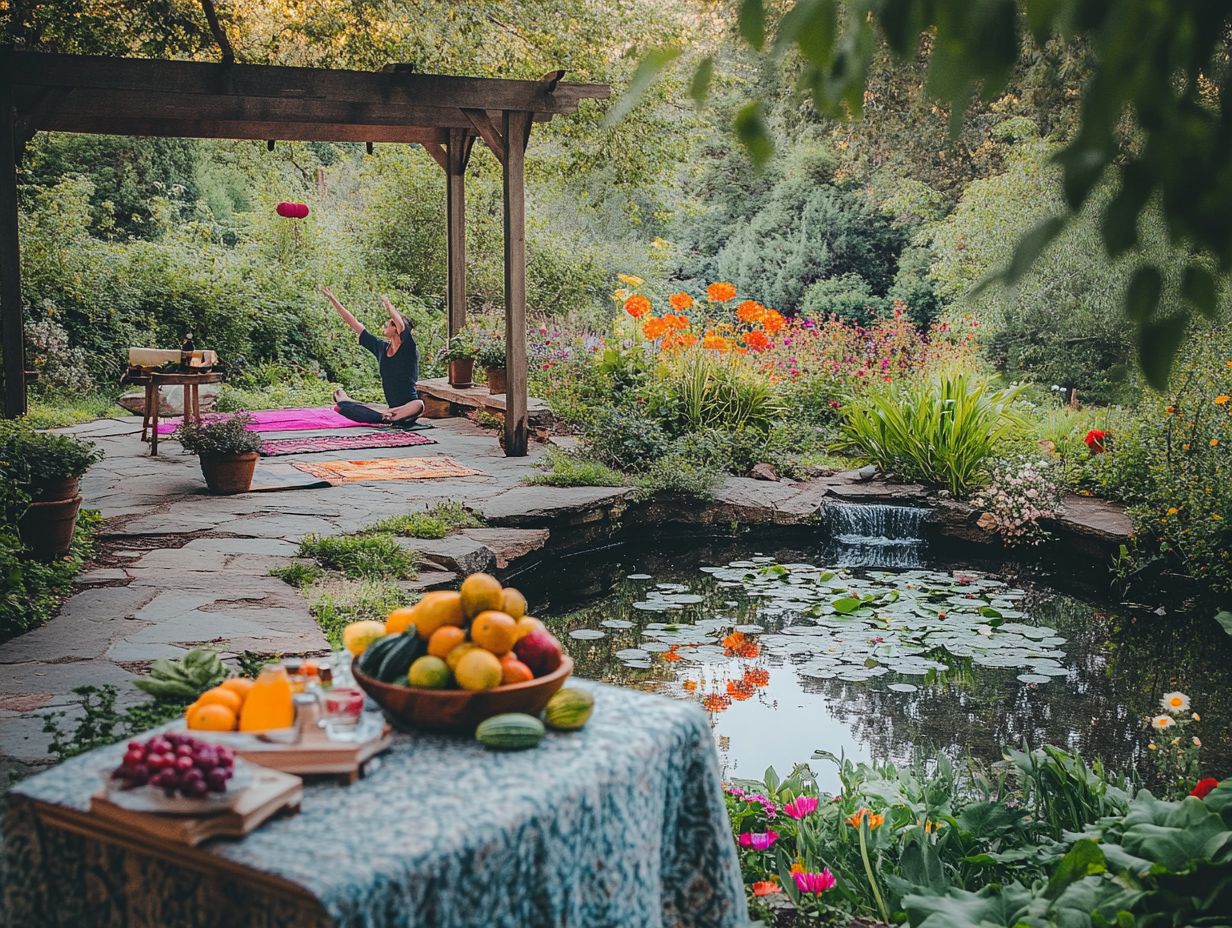
Vegan wellness retreats typically emphasize plant-based meals and offer cooking classes to participants. Attendees are introduced to a variety of vibrant flavors and seasonal ingredients, learning how to create dishes that are both nutrient-dense and delicious.
These cooking classes provide a unique opportunity for participants to explore the art of plant-based cuisine while enhancing their cooking skills and nourishing their bodies with healthy meals. Under the guidance of experts like Kelly Mason, attendees can delve into the culinary traditions of India, Mediterranean, and Southeast Asia, experimenting with vibrant flavors and creative presentation.
Participants will likely prepare:
- Colorful salads featuring roasted vegetables
- Hearty grain bowls with plant-based proteins
- Decadent desserts made with natural sweeteners
Utilizing seasonal ingredients not only elevates the flavors of the dishes but also supports local farmers and reduces environmental impact.
By immersing themselves in the process of preparing healthy meals, individuals develop a deeper connection with their food, fostering mindful eating habits that promote overall wellness.
This culinary journey equips them with valuable skills and enables them to embrace a healthier lifestyle long after the retreat has ended.
2. Yoga and Meditation Sessions
Yoga and meditation are essential components of vegan wellness retreats, helping guests cultivate mindfulness and relaxation. These practices foster a deeper connection between the body and soul, which naturally enhances emotional well-being.
They serve as tools to create balance and energy, with various styles of yoga and meditation offered to support guests on their personal wellness journeys. Wellness center spa resorts, such as Ecocentro Ipec Himalayan Health Spa in Brazil, provide a wide range of yoga options for participants, including Yang Yoga, Yin Yoga, Hatha, and Vinyasa.
This diversity caters to different experience levels and allows guests to discover which styles best align with their personal goals. For instance, Yang Yoga promotes strength and flexibility, while Yin Yoga emphasizes longer-held postures to encourage relaxation and stretching. A Yang Yoga session may help release physical tension, whereas Yin Yoga’s postures and breathing techniques focus on alleviating mental stress.
According to Science Daily, Vinyasa flows prioritize synchronizing movement and breath, with poses transitioning fluidly into one another, often accompanied by upbeat music. As participants move through the poses, they may enter a meditative state characterized by calmness and a renewed perspective. Additionally, Vinyasa sessions provide invigorating cardio workouts.
Meditation further enhances these benefits, as it can be practiced at the beginning of a yoga session to prepare the mind and body or afterward to cultivate a deeper awareness of the present moment. Together, the combination of yoga, meditation, and breathing techniques has been shown to improve overall well-being.
3. Nature Walks and Outdoor Activities
Nature walks and outdoor activities are essential components of a vegan wellness retreat, offering participants opportunities to connect with the natural world and enhance their overall well-being.
Engaging with the outdoors invigorates the body and fosters a sense of community as attendees bond over shared experiences in tranquil landscapes. These activities are designed to energize participants, promoting physical health while encouraging mindfulness and relaxation.
From guided hikes through lush forests to meditative yoga sessions on sun-drenched beaches, these retreats provide a variety of options that cater to different interests and fitness levels.
Group activities, such as canoeing or friendly sports competitions, further enrich the experience, allowing individuals to forge meaningful connections with others who share similar values.
Participating in these outdoor endeavors not only boosts physical fitness but also enhances mental clarity and emotional well-being, making for a transformative experience.
Immersing oneself in nature has proven health benefits, including reduced stress levels and increased happiness, enabling participants to return home rejuvenated and inspired.
4. Educational Workshops and Seminars
Educational workshops and seminars at vegan wellness retreats aim to provide insights into various aspects of wellness, cooking, and mindfulness. These sessions cover topics such as cooking techniques, nutrition, and principles of sustainable living, all of which enhance personal journeys toward a healthier lifestyle.
Additionally, they foster community engagement, allowing attendees to share knowledge and experiences while cultivating a supportive environment. By engaging with topics like plant-based nutrition and holistic health practices, individuals can deepen their understanding and enable themselves to make informed lifestyle choices.
The interactive nature of these workshops encourages participants to ask questions and explore new ideas, creating a dynamic atmosphere conducive to personal growth. Connecting with like-minded individuals helps participants build lasting relationships that extend beyond the retreat, forming a supportive network that continues to inspire a commitment to sustainable living and well-being.
This sense of community reinforces shared values of health and environmental consciousness, making each retreat a transformative experience.
What Are the Different Types of Vegan Wellness Retreats in the UK?
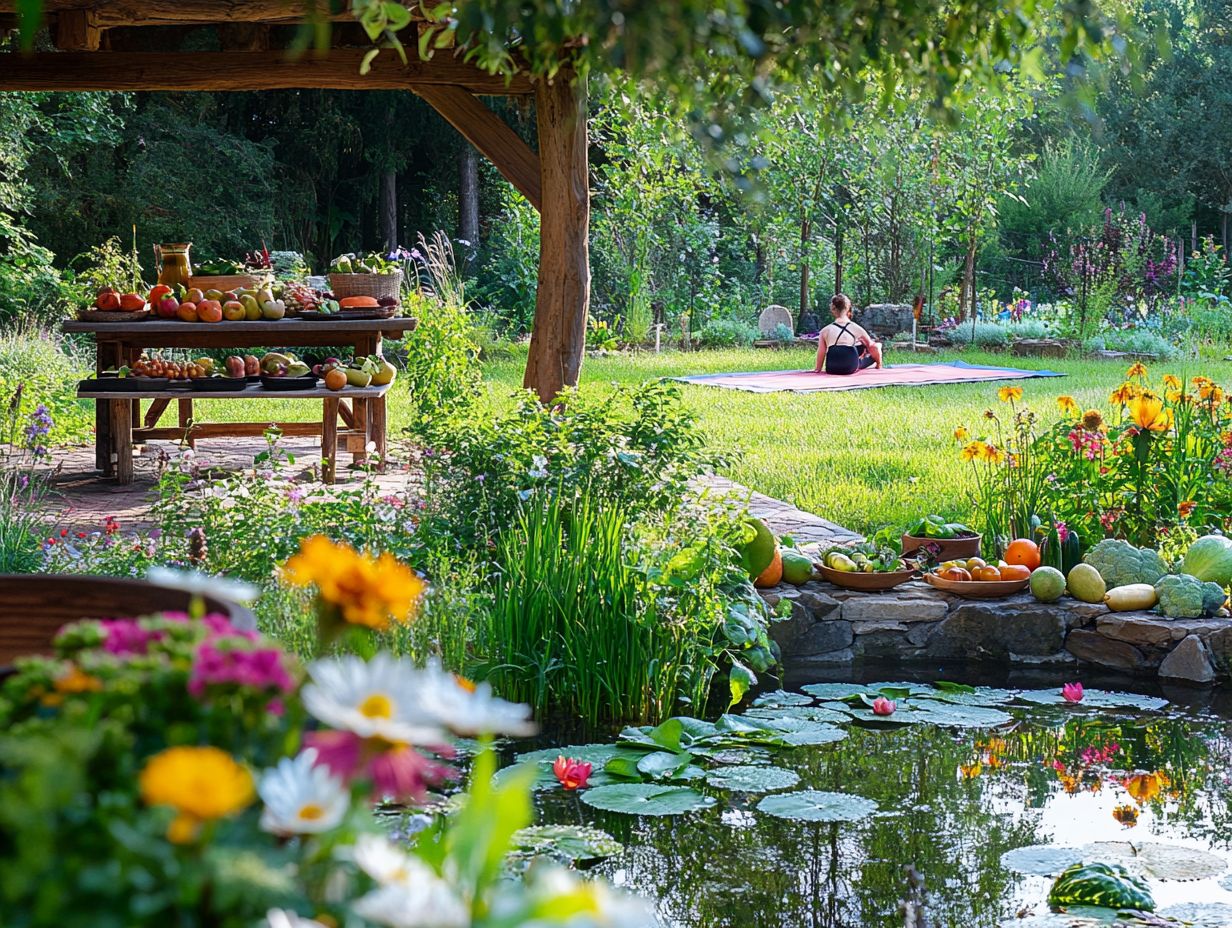
Vegan wellness retreats in the UK offer a diverse range of focuses and approaches, allowing participants to tailor their experiences according to their individual needs and preferences.
Weight loss and detox retreats assist participants in achieving physical transformations, while spiritual and mindfulness retreats provide opportunities for inner healing.
Fitness and adventure retreats deliver exhilarating experiences, and women-only retreats create a supportive space for female enablement and community.
1. Weight Loss and Detox Retreats
Weight loss and detox retreats help participants achieve their health goals through a plant-based lifestyle by providing guided detox programs, balanced meals, and wellness activities focused on transformation and healing.
Immersing oneself in a supportive environment enables individuals to embark on their journeys toward healthier living. These programs typically incorporate yoga, mindfulness practices, and education on the principles of plant-based nutrition.
Participants can expect improvements in their energy levels, mental clarity, and sense of purpose during and after their time at the retreat.
The combination of nutrient-dense, plant-based meals and detoxification processes supports weight loss while helping individuals connect more deeply with their bodies.
Many participants leave the retreats equipped with the tools necessary to maintain their transformation, often reconnecting their experiences with a new lifestyle that promotes long-term health.
2. Spiritual and Mindfulness Retreats
Spiritual and mindfulness retreats are designed to help participants achieve inner peace, healing, and personal transformation through practices such as meditation, yoga, and a healthy vegan diet. These retreats provide individuals with the opportunity to engage in their spiritual journeys while nurturing mindfulness and fostering a sense of community with others on similar paths.
The immersive experience encourages deep reflection and rejuvenation in a safe and supportive environment.
These retreats often adopt a holistic approach, intertwining physical, mental, and spiritual well-being, thereby creating fertile ground for self-discovery and enablement. Attendees typically practice yoga daily to enhance flexibility and strength, while meditation fosters awareness, focus, and a deeper connection to oneself.
Plant-based nutrition plays a crucial role, as nourishing meals help boost energy levels and promote overall health. Mindful eating also contributes to improved well-being and aligns with the ethical principles many participants aspire to embody.
As individuals reflect on their personal life stories, they often discover healing and a renewed sense of purpose, while also building community and forming meaningful friendships.
3. Fitness and Adventure Retreats
Fitness and adventure retreats combine wellness with active experiences in nature, offering participants an engaging way to connect with both personal health and the environment. These retreats typically feature a variety of high-energy activities, such as hiking, cycling, and group workouts, complemented by wholesome vegan meals made from seasonal ingredients. This approach fosters a supportive community by encouraging physical engagement and emotional bonding.
Along with physical activities, mindfulness practices like yoga and meditation are often incorporated to help participants cultivate mental strength and emotional stability. Guests are frequently encouraged to step outside their comfort zones, whether through conquering a physically challenging hike with breathtaking views or participating in team-building exercises that promote a sense of unity.
Plant-based nutrition plays a crucial role in promoting both physical and mental wellness at these retreats. Attendees are often guided in preparing healthy, locally sourced, and sustainable plant-based meals, allowing them to forge a deeper connection with their surroundings.
Overall, fitness and adventure retreats successfully integrate exercise, healthy eating, and holistic wellness, enabling participants to return home rejuvenated and equipped with new tools for maintaining a healthy lifestyle.
4. Women’s Only Retreats
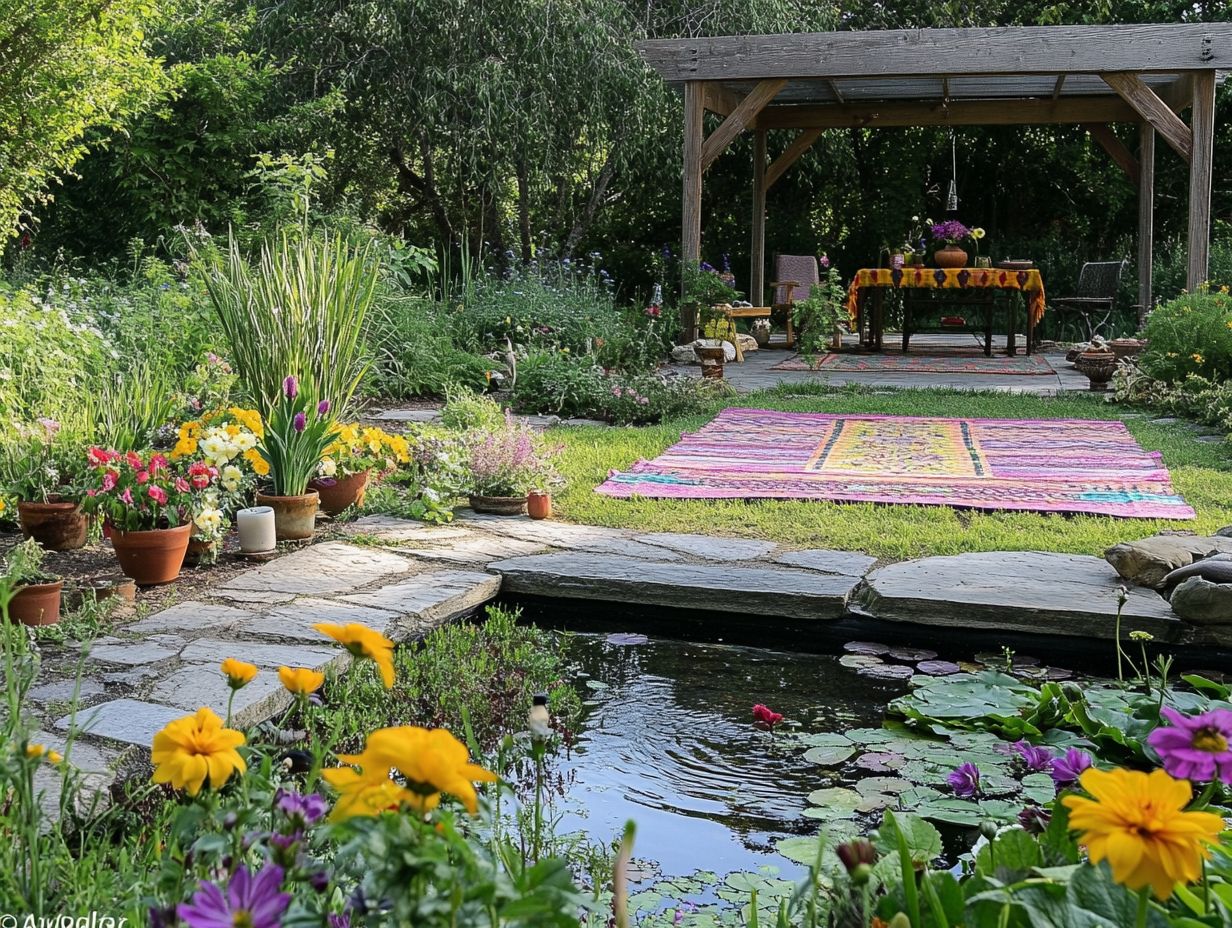
Women’s only vegan wellness retreats are designed to create a safe and supportive environment where participants can focus on enablement, healing, and personal growth.
These retreats typically offer a combination of wellness activities, including yoga, cooking classes, and workshops that foster community among women. By sharing their experiences and insights, attendees can cultivate deeper connections while pursuing their wellness journeys.
This nurturing atmosphere not only promotes health and well-being but also encourages self-discovery and reflection, enabling women to release stress and rejuvenate their spirits.
The communal aspect of these retreats fosters a sense of belonging, where participants uplift one another through shared stories and challenges.
Additionally, expert facilitators guide women through transformative practices, equipping them with tools that extend well beyond the retreat.
Together, the unique blend of support and enablement found in women’s only retreats can lead to lasting friendships and a commitment to continue nurturing this newfound enablement in their daily lives.
How to Choose the Right Vegan Wellness Retreat for You?
Selecting the right vegan wellness retreat depends on an individual’s preferences. The first step in this process is to determine what you hope to gain as a participant.
Ask yourself: What do I want from this experience? Is my goal physical transformation, the benefits of a holistic health retreat, relaxation and detox, or community engagement?
By identifying the retreat attributes that matter most to you—such as the location, activities offered, and the physical and emotional wellness atmosphere—you can find a retreat that is well-suited to your journey toward optimal health and wellness.
What Are the Potential Challenges of a Vegan Wellness Retreat?
Vegan wellness retreats provide numerous benefits, but participants may also encounter potential challenges during their stay.
For some individuals, especially those new to veganism, adjusting to a plant-based diet can be difficult. Participants might face physical and mental challenges as they engage in wellness activities, along with social pressures from fellow attendees.
Being aware of these challenges in advance can help individuals prepare for a more rewarding experience.
1. Adjusting to a Plant-based Diet
Adapting to a plant-based diet during a vegan wellness retreat can be challenging, especially for individuals who are not familiar with vegan cooking. Participants may experience a learning curve as they adjust to new meals and flavors while moving away from their previous diets.
The guidance of expert chefs and nutritionists can facilitate this transition and enhance the retreat experience. This process often involves addressing cravings for familiar foods, which can be one of the biggest hurdles for many. Careful meal planning and creative food substitutes are essential in overcoming these challenges.
Group cooking activities not only foster a sense of community but also equip participants with practical skills for preparing delicious vegan meals on their own after the retreat. Mindfulness practices can help participants develop a positive attitude toward these new foods, allowing them to appreciate the health benefits and delightful flavors of a plant-based diet.
Encouraging participants to be patient and compassionate with themselves throughout this journey can enable them to embrace the challenge of adapting to a vegan lifestyle.
2. Physical and Mental Challenges
During a vegan wellness retreat, participants may encounter both physical and mental challenges, especially during activities designed to promote wellness and self-discovery.
The combination of vigorous yoga, challenging outdoor activities, and demanding mindfulness practices can be taxing on both the body and mind, necessitating that participants listen to their bodies and prioritize self-care.
Recognizing that these challenges exist is crucial for ensuring that the retreat remains a positive and transformative experience. Participants may experience physical and emotional fatigue; thus, prioritizing self-care is essential for navigating these obstacles.
They might feel their bodies fatigued from exercise or emotionally drained by the introspective effort required during meditation. In such moments, mindfulness techniques can help participants return to the present and reinforce their resolve.
Simple practices, such as taking a few deep breaths or enjoying a nourishing vegan meal, can significantly impact by providing the energy or clarity needed.
Balancing the physical challenges with rest and restorative practices will enable participants to fully reap the benefits of the holistic approach of the retreat and deepen their understanding of their bodies and minds.
3. Dealing with Social Pressures
Social pressure can negatively impact vegan wellness retreats, as participants may feel compelled to conform to the group’s social norms. However, these retreats also provide individuals with the opportunity to immerse themselves in their unique journeys, fostering a sense of community among those on a similar path.
By identifying and addressing social pressure, it is possible to create a more supportive atmosphere that encourages deeper and more authentic connections.
It is essential to cultivate an environment where participants feel comfortable expressing their own views and experiences, as the fear of judgment often hinders open sharing. Participants who feel judged may be reluctant to share their stories and experiences.
One effective way to promote sharing is to incorporate group sessions where participants are invited to discuss their stories, challenges, and successes related to their health and wellness journeys.
Establishing ground rules for these conversations—such as the need for respectful listening, open dialogue, and refraining from judging or correcting others’ perspectives—can significantly enhance the retreat experience by fostering a sense of community and mindfulness.
By facilitating discussions that highlight the diverse backgrounds and experiences of group members, acceptance and understanding can be fostered. This approach can lead to stronger relationships and reinforce a supportive community culture that enables all participants in their wellness journeys, focusing on both physical and emotional transformation.
How Can You Maintain a Vegan Lifestyle After the Retreat? Exploring Culinary Journeys and Balanced Lifestyles
A vegan lifestyle after a retreat is developed by integrating the lessons and experiences gained during the retreat into daily life at home. The retreat’s goal, as envisioned by Sunsetbay Retreats, is to facilitate participants’ transition to a long-term plant-based lifestyle, highlighting vibrant flavors and sustainable practices.
To support this transition, participants are encouraged to maintain their connections with the individuals and communities they formed during the retreat. These connections, such as those found in Green Campus Delta or West Witter, can serve as a valuable resource for sharing experiences, exchanging resources, and discussing challenges, helping everyone to stay accountable and supported in their plant-based journeys.
Cooking mindfully with local and seasonal ingredients, such as turmeric and kimchi, along with the principles of healthy, mindful living learned at the retreat, enables participants to sustain a vegan lifestyle that nurtures both their bodies and souls, as taught by experts like Kelly Mason and shared on platforms like DrFuhrman.com.



